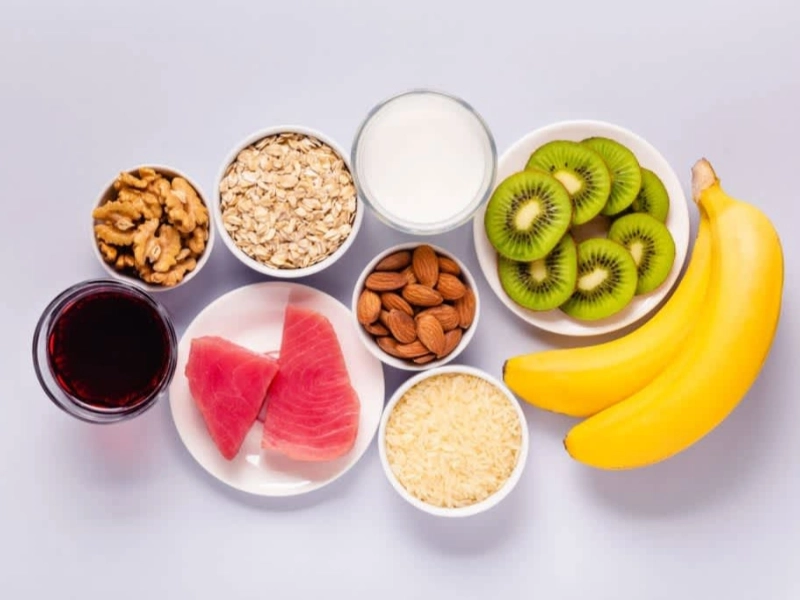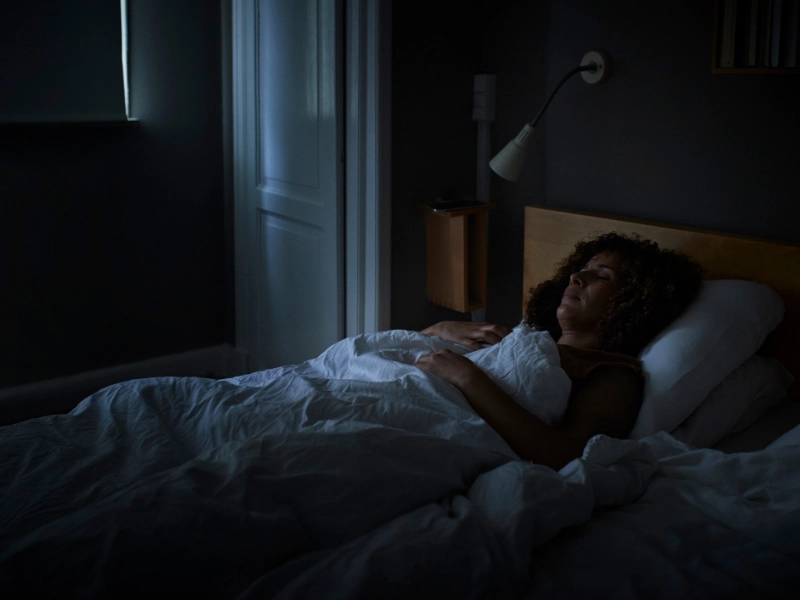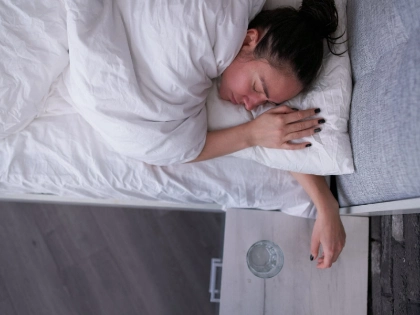The body naturally creates the hormone melatonin, which induces sleep, in reaction to darkness. Rather than taking supplements, it's better to allow your body manufacture melatonin naturally. You should also try to make sure your lights are turned down an hour before bed.
A change in diet may also be beneficial. Warm milk is another excellent source of natural melatonin, as are tart cherries, goji berries, and fish.
1.Eat melatonin-rich foods

Advertisement
Numerous everyday meals can increase your body's natural melatonin production, which balances your circadian rhythm and enhances the quality of your sleep in general. Berries and other foods like bananas and oats are also good sources. Try a tart cherry concentrate or juice, but be aware that they may include a lot of sugar.
Pistachios in particular are rich in melatonin, but other nuts—walnuts, hazelnuts, pumpkin seeds, and almonds—also provide vital elements like fibre, protein, and beneficial omega-3 fatty acids. Before going to bed, try a handful of these or some nut butter spread over a banana or graham cracker.
In addition to being a fantastic source of iron and protein, eggs are also high in melatonin. Warm milk is another popular beverage that induces sleep and, because to its melatonin content, may actually aid in falling asleep.
2. Lights out before going to bed

Your biological clock, or circadian rhythm, is governed by the patterns of light and dark in your wake-sleep cycle. Your pineal gland, which generates and releases the sleep hormone melatonin, is the master regulator of this rhythm.
This part of the brain can be reset by exposure to intense light during the day, which will alter your sleep-wake cycle. This may make it difficult to get up in the morning and may interfere with the generation of melatonin at night.
Dim the lights at least two hours before bed to encourage a healthy circadian rhythm and facilitate effortless sleep. Additionally, since blue light suppresses melatonin, stay away from utilising electronics that emit blue light at night, such as TVs and cell phones. Rather, to facilitate sleep, wear glasses that block blue light.
3. Exercise

Exercise has the potential to enhance the body's endogenous melatonin production. However, try to avoid working out right before bed. Exercise can increase heart and brain blood flow, which might interfere with sleep.
The 24-hour body clock that controls sleep-wake cycles and other essential biological functions is known as circadian rhythm, and the hormone melatonin plays a role in regulating it. Tryptophan, an amino acid, is converted into melatonin by the pineal gland in the dark of the night.
Melatonin can be suppressed by light, particularly the blue light emitted by electronics, which might make it difficult for you to go asleep. On your laptop or phone, employ a filter to enhance the benefits of melatonin. Before going to bed, try eating foods high in melatonin, such as goji berries, pineapple, bananas, walnuts, and almonds. After then, turn down the lights to allow the melatonin to take effect.
4. Rest in a dimly lit room

Studies have indicated that melatonin hormone production is enhanced when one sleeps in a dark room. The pineal gland produces this hormone, which aids in controlling our bodies' circadian rhythms—internal biological processes that run on a 24-hour cycle every day.
Light and dark are the primary factors that control our circadian rhythms. Our bodies release melatonin as the sun sets in order to get ready for sleep. Throughout the day, melatonin levels drop, then rise at night.
To create a fully black sleeping space, it's critical to eliminate all light sources from your bedroom, including alarm clocks, USB chargers, and electrical devices. It's also critical to get adequate sunlight throughout the day to support a healthy circadian rhythm and improve your quality of sleep at night.
5.Oral melatonin supplementation

While your circadian rhythm depends on natural melatonin, taking a melatonin supplement might be a fantastic alternative if you are having trouble falling asleep or need an extra boost for things like jet lag. However, before taking one, especially if you are on other medications, make sure to see your doctor.
Additionally, you have to abstain from melatonin-suppressing substances like alcohol and caffeine in the hours before night. Rather, make an effort to eat melatonin- and tryptophan-rich foods like tomatoes, orange bell peppers, and flaxseeds. If you choose to use melatonin supplements, make sure you get a high-quality product manufactured by a reputable manufacturer and verified by the United States Pharmacopeial Convention. One 2 mg slow-release tablet taken 30 to 1 hour before bed is a reasonable starting dose.












